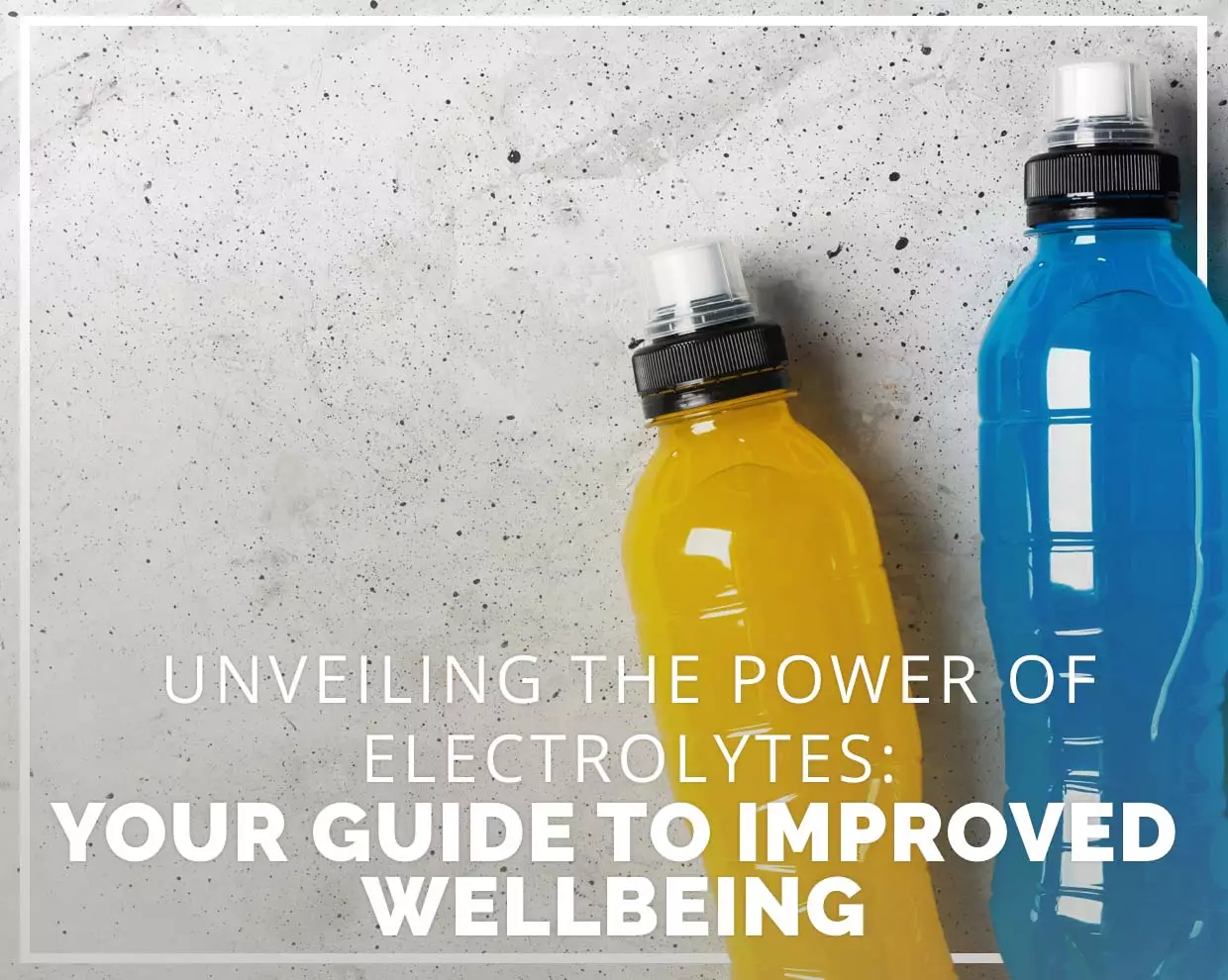Disclaimer: This article aims to enhance understanding and knowledge about health and wellness topics. It is not intended as a substitute for professional medical advice, diagnosis, or treatment. Always consult your physician or other qualified health provider with any questions you may have about a medical condition.
Electrolytes, often mentioned in health and fitness conversations, play a significant role in maintaining our body's functionality. In this comprehensive guide, we delve into the science behind electrolytes, their impact on our wellbeing, and their vital contribution to a healthier, functional self.
Understanding Electrolytes: What Are They?
Electrolytes are minerals with an electric charge. They are fundamental for a range of bodily functions such as hydration, nerve communication, muscle contractions, and maintaining the body's pH balance. [1] The most common electrolytes in the human body are sodium, potassium, calcium, bicarbonate, magnesium, chloride, and phosphate. [2]
Why are Electrolytes Essential?
1. Hydration
The main task of electrolytes is to maintain our body's water balance. Sodium, in particular, helps retain water, keeping our cells adequately hydrated. [3] Potassium and chloride also play essential roles in cellular hydration.
2. Nerve Communication
Electrolytes, specifically sodium and potassium, aid in transmitting nerve signals. This communication between nerves, a crucial step for our body's responses, depends on the levels of these electrolytes. [4]
3. Muscle Contractions and Relaxation
Calcium plays an indispensable role in muscle contraction, while magnesium aids in muscle relaxation. An imbalance in these electrolytes can lead to muscle cramps, weakness, or, in severe cases, irregular heartbeat. [5]
4. pH Balance
Our body functions optimally at a slightly alkaline pH level. Electrolytes such as bicarbonate and phosphate help to balance our blood pH, preventing it from becoming too acidic or too alkaline. [6]
Maintaining Electrolyte Balance: Importance and Strategies
Maintaining an optimal balance of electrolytes is critical for our body to function properly. A disruption of this delicate balance can lead to a range of health issues from fatigue and muscle cramping to more serious conditions like seizures and arrhythmias. [7]
To maintain this balance, it's crucial to adopt a balanced diet rich in electrolyte-containing foods and fluids. For example, potassium is abundant in fruits and vegetables, especially bananas and oranges. [8] Dairy products and leafy green vegetables are rich in calcium. [9] Sodium, though often over-consumed, is found in salt and many processed foods. [10] Magnesium is present in foods like nuts, seeds, and whole grains. [11]
For those with increased electrolyte needs (e.g., endurance athletes, individuals with certain medical conditions), electrolyte supplementation may be necessary. [12] However, supplementation should only be considered under medical supervision.
Electrolytes, though invisible to the naked eye, are essential to our overall health and wellbeing. Understanding their role and ensuring a balanced intake can significantly improve bodily functions and contribute to a healthier you!
When diet alone isn't enough to meet your electrolyte needs, high-quality supplements can be a practical solution. At Functional Self, we offer a range of premium vitamins and minerals designed to help you maintain an optimal electrolyte balance and boost your overall health. Explore our collection today and take the next step towards a healthier, more functional self!
Education about our body's intricate systems is an important step towards self-improvement. And it's our goal at Functional Self to help you take those steps. Your functional self is not far off - all it takes is a little understanding and action!
References:
1 Human water needs
2 Evolve Resources for Kumar & Clark's Clinical Medicine, 9th Edition
3 Hydration assessment techniques
4 A quantitative description of membrane current and its application to conduction and excitation in nerve
5 AGREE Appraisal of Clinical Practice Guideline for the Diagnosis and Management of Group A Streptococcal Pharyngitis
6 Sensors and regulators of intracellular pH
7 Prognostic Importance of Hyponatremia in Patients with Acute Pulmonary Embolism
8 Health benefits of fruits and vegetables
9 A Novel Approach Localizes the Association of Vitamin D Status With Insulin Resistance to One Region of the 25-Hydroxyvitamin D Continuum
10 Sodium Intake among US School-Aged Children: National Health and Nutrition Examination Survey, 2011–2012
11 The Importance of Magnesium in Clinical Healthcare
12 Fluids and hydration in prolonged endurance performance

 EU Store
EU Store  UK Store
UK Store NZ Store
NZ Store AU Store
AU Store














